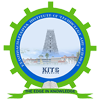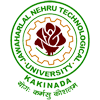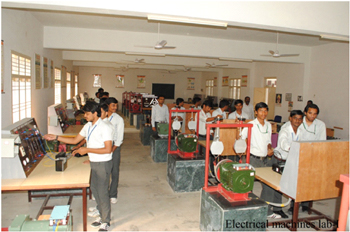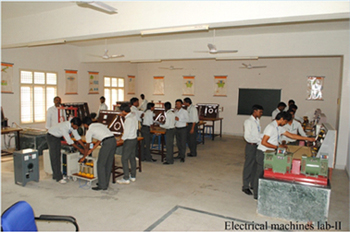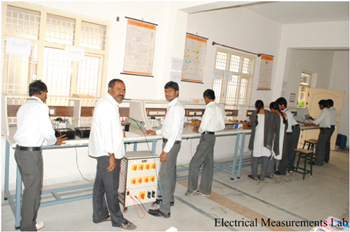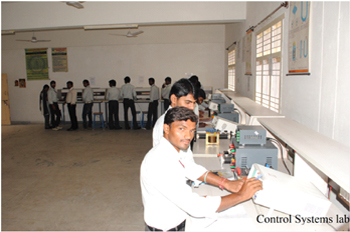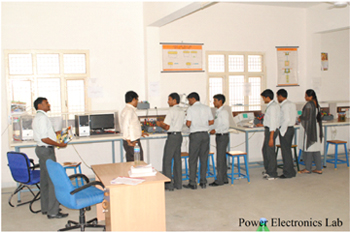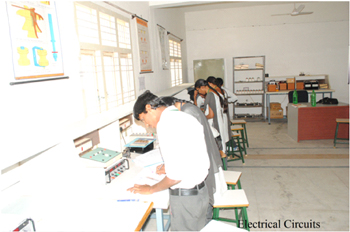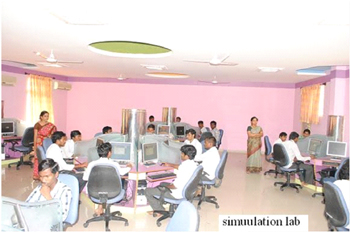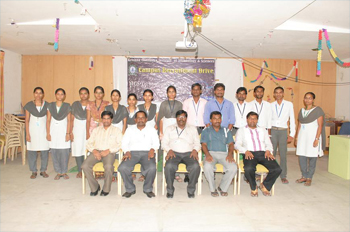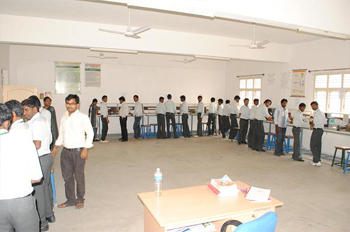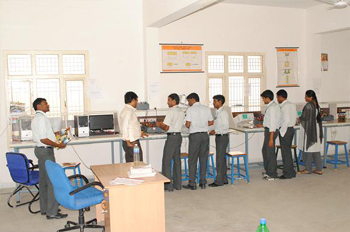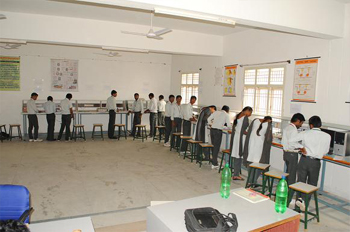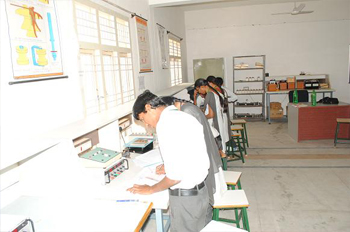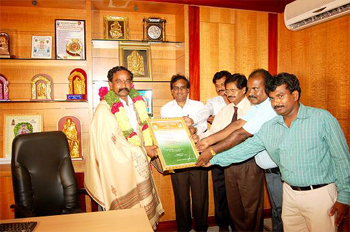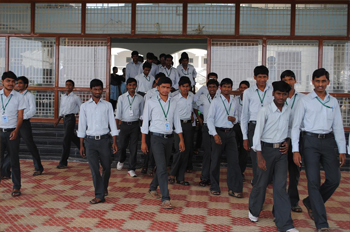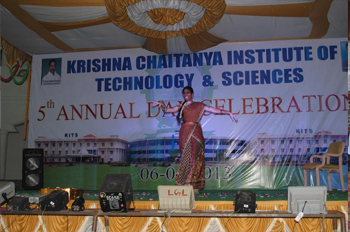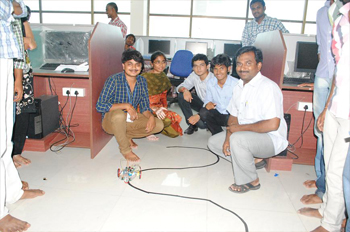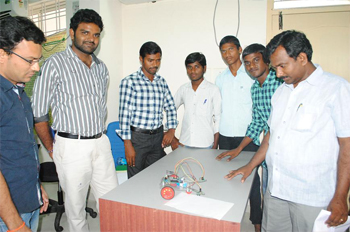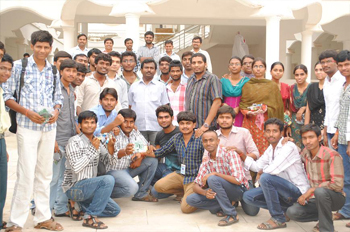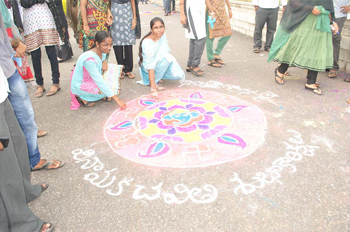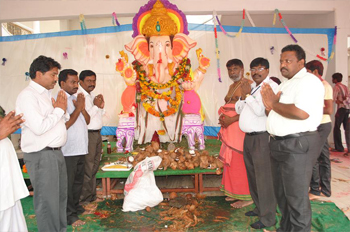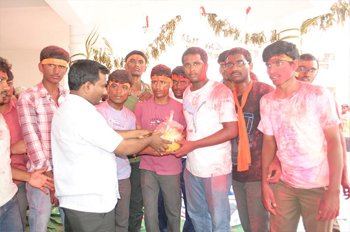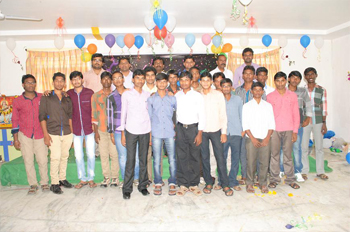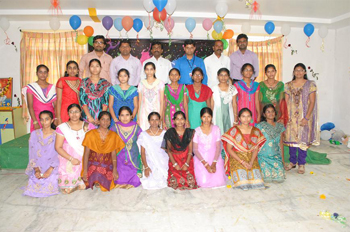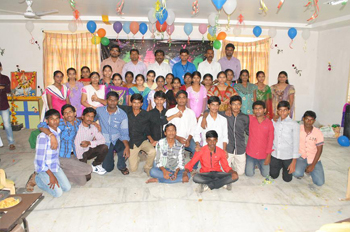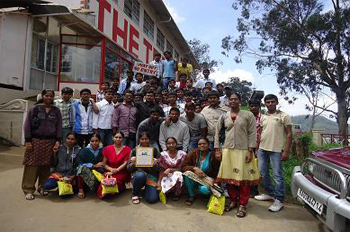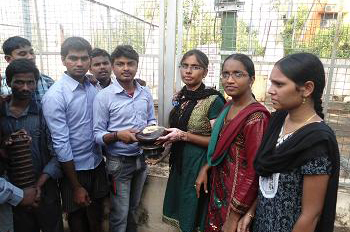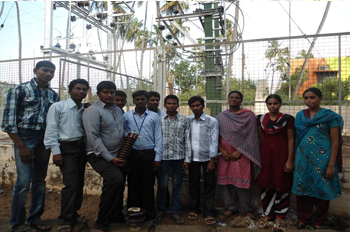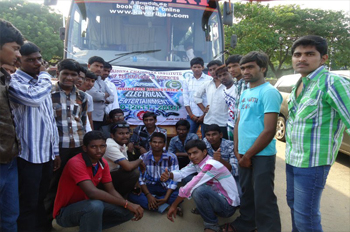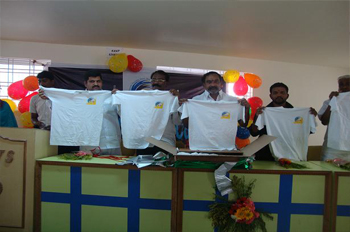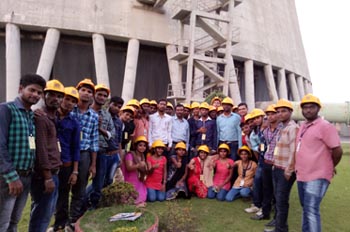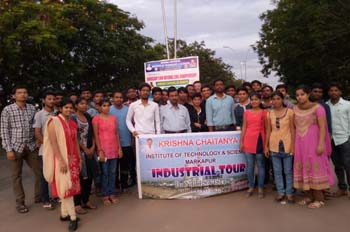Electrical and Electronics Engineering Vision & Mission
The department envisions that the students of the branch become engineers of professional character equipped with a strong theoretical foundation required for critical thinking, practical engineering skills to face the challenges in the field, the ability to work in a team dignity, and all the qualities that help them accomplish their aims and objectives.
The Electrical and electronics Engineering Department is committed to provide opportunities for all students to become active life-long learners with the necessary competencies, skills, understanding, and good values, able to Contribute and succeed in a rapidly changing world.
It aims to do this by enhancing learning and teaching capabilities.
Through its highly qualified committed faculty, constantly, contributing, for the best performance and ensuring a good working environment for imparting better quality technical Education.
PSOs, PO’s, PEO’S
PSO-1: Able to utilize the knowledge of Power Electronics in collaboration with Electrical Machines to provide an engineering solution in the
areas related to Electrical Drives.
PSO-2: To develop new cutting-edge Technologies in Power Systems associated with efficient conversion and control of electrical power.
PSO-3: Able to use software for design, simulation and analysis of electrical systems
- Engineering knowledge: Apply the knowledge of mathematics, science, engineering fundamentals, and an engineering specialization to the solution of complex engineering problems.
- Problem analysis: Identify, formulate, research literature, and analyze complex engineering problems reaching substantiated conclusions using first principles of mathematics, natural sciences, and engineering sciences.
- Design/development of solutions: Design solutions for complex engineering problems and design system components or processes that meet the specified needs with appropriate consideration for the public health and safety, and the cultural, societal, and environmental considerations.
- Conduct investigations of complex problems: Use research-based knowledge and research methods including design of experiments, analysis and interpretation of data, and synthesis of the information to provide valid conclusions.
- Modern tool usage: Create, select, and apply appropriate techniques, resources, and modern engineering and IT tools including prediction and modeling to complex engineering activities with an understanding of the limitations.
- The engineer and society: Apply reasoning informed by the contextual knowledge to assess societal, health, safety, legal and cultural issues and the consequent responsibilities relevant to the professional engineering practice.
- Environment and sustainability: Understand the impact of the professional engineering solutions in societal and environmental contexts, and demonstrate the knowledge of, and need for sustainable development.
- Ethics: Apply ethical principles and commit to professional ethics and responsibilities and norms of the engineering practice.
- Individual and team work: Function effectively as an individual, and as a member or leader in diverse teams, and in multidisciplinary settings.
- Communication: Communicate effectively on complex engineering activities with the engineering community and with society at large, such as, being able to comprehend and write effective reports and design documentation, make effective presentations, and give and receive clear instructions.
- Project management and finance: Demonstrate knowledge and understanding of the engineering and management principles and apply these to one’s own work, as a member and leader in a team, to manage projects and in multidisciplinary environments.
- Life-long learning: Recognize the need for, and have the preparation and ability to engage in independent and life-long learning in the broadest context of technological change.
PEO-1: Preparation – Higher education: Graduates of EEE program shall excel in technical education by providing a strong foundation in electrical engineering and enable them to pursue higher studies so as to find entry level positions in industries.
PEO-2: Core competence and T-Shaped engineer: Graduates of EEE program be technically competent so as to create, analyze, research, design, develop, optimize and implement solutions to electrical problems and social problems.
PEO-3: Professionalism and Lifelong Learning: Graduates of EEE program have professionalism, ethical attitude, communicational skills, team work and adapt to current trends by engaging in lifelong learning.
Faculty Details
| S.No | Faculty Name | Designation | Qualification | Experience |
| 1 | Mr. B. RAJU | Asst. Professor | M.Tech | 3 |
| 2 | Mr. B. SURESH | Asst. Professor | M.Tech | 6 |
| 3 | Mr. A. BALA CHANDRA | Asst. Professor | M.Tech | 2 |
S. NO. | NAME OF THE STAFF | DESIGNATION | QUALIFICATION |
1. | Mr. P. Rama Subba Rao | Lab Technician | I.T.I |
2 | Mr. A. Sai Ram | Lab Technician | Diploma (EEE) |
3. | Mr. V Eswara Sai Kumar | Lab Technician | I.T.I |
EEE Department Activities
| S.No | Name of the Seminars/Conferences/Workshops | Type | Source | |
|---|---|---|---|---|
| 1 |
|
National Level Technical Symposium | College Management & Registration fees | |
| 2 | Annas fest-2k12(ERIC-2k12) | National Level Technical Symposium | College Management & Registration fees | |
| 3 | Annas fest-2k15(ERIC-2k15) | National Level Technical Symposium | College Management & Registration fees |
| Module Description | Any Other Contributory Institute/Industry | Duration days | Resource Persons | Source of funding |
|---|---|---|---|---|
| workshop on ‘Embedded Systems’ | ADP,Gujarath | 6 | Mr.pavamsha | College |
| Workshop on ‘plc&scadaautomation’ | ACS, Pune | 5 | Mr.Irshaad
Ali
Mr.Raja Mr.Sekhar reddy |
College |
| Soft skills seminar | Globaeina | 1 | Mr.Juid | Globaeina |
| workshop on ‘Electro Magnetic Fields’ |
VBIT, HYD | 2 | Dr.S.kamaks haiah Dr.A.Srinivasula Reddy |
College |
| Technical quiz | KITS | 1 | KITS | College |
| Year/batch | Name of the Industry visited | Place | Date of visit |
|---|---|---|---|
| III B.Tech | APSEB | Markapur | 10 JULY 2010 |
| II B.Tech | Hydro Power Plants | Srisailam & Nagarjuna Sagar | 10 OCT 2010 |
| 2012-2013 | |||
| III B.Tech | BHEL | Bangalore | 17 SEP 2012 |
| IV B.Tech | Thermal Power Plants | Dr. NTTPS, Vijayawada | 26 SEP 2012 |
| 2014-2015 | |||
| II&III B.Tech | Hydro Power Plants | Srisailam | 19 OCT 2014 |
| II&III B.Tech | Thermal Power Plants | Dr. NTTPS, Vijayawada | 20 OCT 2014 |
| 2015-2016 | |||
| III&IV B.Tech | Sourthen distribution system 33/11kv | Markapur | 22 AUG 2015 |
| III B.Tech | 220/132/33kv substaion | Darimadhugu | 28 AUG 2015 |
| III B.Tech | Hydro Power Plants | Srisailam | 17 OCT 2015 |
EEE Detailes of Laboratories
| S.No | Room No. | Laboratory Name | Description of lab | Area (m2) | Cost (Rs.) |
|---|---|---|---|---|---|
| 1 | A108 | Electrical machines lab-I | This lab deals with dc motors & generators characteristics and performance | 191.1 | 7,24,508 |
| 2 | A108 | Electrical machines lab-II | This lab deals with ac motors and transformers characteristics and performance. | 191.1 | 5,70,011 |
| 3 | A112 | Electrical Measurements Lab | This lab deals with various measuring instruments viz |
105.56 | 2,29,149 |
| 4 | A110 | Control Systems lab | This lab gives complete idea about p,pi,pid controllers,lead lag compensator,feedback systems and stability of system | 106.47 | 3,04,301 |
| 5 | A110 | Power Electronics Lab | This lab gives clear idea about power electronic equipments performance and characteristics | 106.47 | 4,76,300 |
| 6 | A211 | Simulation lab | This lab gives idea about simulation of all power electronic devices using software pspice &MATLAB | 118.3 | 7,46,58,692 |
| 7 | A211 | Electrical Circuits Lab | This lab is useful in solving electrical circuits using network reduction techniques. | 105.56 | 3,16,642 |
